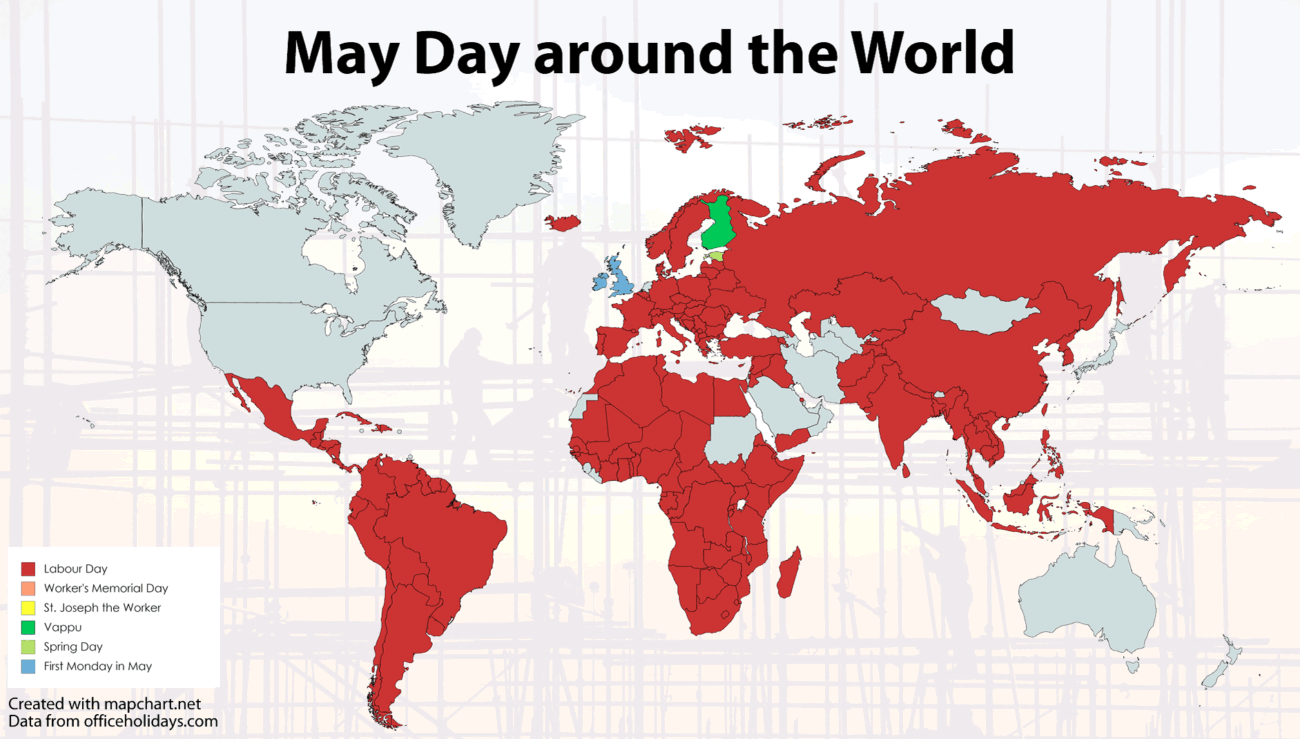Labor Day is a national holiday in Nigeria that recognizes workers’ contributions to economic growth and development. It is observed on May 1st each year and is also known as May Day. In this article, we’ll look at the history, significance, and traditions surrounding Labor Day in Nigeria.
History of Labor Day in Nigeria
Labor Day in Nigeria dates back to the early twentieth century when labor unions first appeared in the country. Unions were formed to protect workers’ rights and to press employers for better working conditions and wages. To raise awareness about their cause, these unions organized protests, strikes, and demonstrations.
The Nigerian government declared Labor Day a public holiday on May 1, 1981, recognizing the importance of workers to the country’s development. Labor Day has been observed on May 1st since then, with various activities and events organized by labor unions, employers, and the government.
READ ALSO: 100 Happy New Month Messages, Wishes, Prayers For May

Significance of Labor Day in Nigeria
Labor Day has special significance for Nigerian workers because it is a day to celebrate their accomplishments, recognize their struggles, and recognize their contributions to the country’s economy. It also serves as a reminder to employers and the government to respect workers’ rights, provide safe working conditions, and promote workplace equality.
Labor Day in Nigeria is an opportunity for workers to gather, share their experiences, and engage in collective bargaining. It is also a day for labor unions to advocate for reforms and policies that benefit workers.
Celebrating Labor Day in Nigeria
Labor Day is a holiday in Nigeria, and there are numerous ways to celebrate it. Nigerians celebrate Labor Day in the following ways:
Labour unions organize parades and demonstrations to raise awareness about workers’ rights and advocate for better working conditions.
Labour leaders and government officials deliver speeches and lectures on the value of workers and the need for better working conditions.
Employers organize sports and games competitions for their employees in order to foster unity and camaraderie among them.
Picnics and outings with families: Workers spend the day with their families, taking picnics and going to parks and recreational centers.
Religious services: Some workers attend religious services to pray for their coworkers and the progress of the country.
May Day
May 1st was also a pagan holiday in many parts of Europe, with its origins in the Gaelic Beltane. When the beginning of summer was celebrated, it was considered the last day of winter.
May 1st was regarded as a significant date in Roman times for commemorating fertility and the arrival of spring. Flora, the goddess of flowers and the season of spring, was honored with a Roman festival from April 28th to May 3rd.
Morris dancing, crowning a May Queen, and dancing around a Maypole are traditional English May Day rites and celebrations that helped make May Day a popular seasonal celebration in medieval England.
Conclusion
Finally, Labour Day is a significant holiday in Nigeria that recognizes and celebrates workers’ contributions to the country’s economic growth and development. It’s a day to celebrate their accomplishments, acknowledge their struggles, and advocate for better working conditions and policies. By commemorating Labor Day, Nigerians can promote worker unity and solidarity, as well as equality and fairness in the workplace.






















